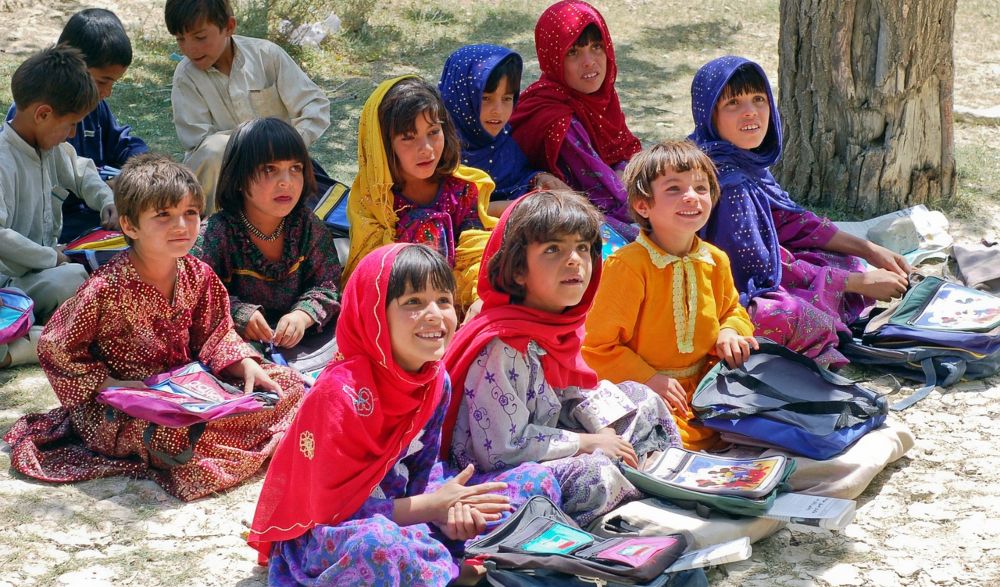The name has hung like a storm cloud over our horizon for 20 years, though it’s closer for some even as it fades into our collective memory. A few of my teenaged relatives enlisted after 9/11. One became a Marine and deployed to Afghanistan. He did convoy duty or was behind the wire, on base. When he came home, he had nothing but contempt for the Afghan people. They were stupid and smelly and lived in dirt houses.

He spent his second tour outside the wire as a sniper hunting the enemy. He did well but was different when he came back. The Afghans were dignified, resilient; the average American could never endure what they can, he said. When his hitch was up, he didn’t go back.
The advent of Seattle Opera’s A Thousand Splendid Suns, a powerful event on its own, is also an invitation to revisit our role in a country’s struggle most Americans know only as the distant name of our longest war. But instead of grappling with ungovernable questions of history, Khaled Hosseini’s 2007 novel, like the opera it inspired, illuminates the lives of ordinary Afghans over four decades through a single family’s story.
And yet his book has been removed from school libraries and curricula across the U.S. because of the story it tells so plainly, poignantly, and without gratuitous effect. What condemns it is an intimate and unvarnished gaze into the issues Afghans face in a culture far removed but with parallels to our own.
The story begins at the end of the monarchy period in the 1960s when the country, while poor, was peaceful, and the diverse population coexisted in relative prosperity. The lives of two women, Mariam and Laila, unknown to each other and born a generation apart in Herat and Kabul, slowly intertwine in succeeding years, showing us how relationships formed by love or necessity are governed by society, and the rules that everyone must follow — especially women.
Years succeed gracefully against the backdrop of one national conflict after another, from coups to communism to the Soviet invasion to the rise of the Taliban and, finally, the arrival of American and coalition forces. The writing touches on these things lightly, discreetly; it is the effect of violence, not the act, that merits attention.
We are deftly led through kitchens, streets, countryside, and souls; moments are evoked by a look, a word, a silence. But the foreground is always the family and the demands on Mariam and Laila to keep theirs whole in the face of cruel setbacks and abuse at the hands of soldiers, strangers, and husbands.
But they endure.
Arrested for leaving her home without a male escort, even in a burka Laila finds no protection as she is interrogated by a police officer preserving “order.” “Laila almost laughed. She was stunned that he’d used that word in the face of all the Mujahideen factions had done — the murders, the lootings, the rapes, the tortures, the executions, the bombings, the tens of thousands of rockets they had fired at each other, heedless of all the innocent people who would die in the crossfire. Order.”
For all its unblinking gaze into the experience of civilians in war, this novel is no litany of suffering. It is a tale of love, from intractable familial love to unfathomable romantic love. Mariam personifies the thought on a sleepless night, watching snow fall in Kabul during a lull in shelling.
“Seasons had come and gone; presidents had been inaugurated and murdered; an empire had been defeated; old wars had ended and new ones had broken out. But Mariam hardly noticed, hardly cared … the past held only this wisdom: that love was a damaging mistake, and its accomplice, hope, a treacherous illusion. And whenever those twin poisonous flowers began to sprout … Mariam uprooted them and ditched them before they took hold.”
But when two new flowers unexpectedly sprout in her life, Laila and her infant daughter, Mariam realizes “it is God who planted them. And it is His will that you should tend them,” even as the snow continues unendingly. That is probably the best way to describe this book: an unexpected flower growing amid chaos, just as its people bloom in a society at war with itself.
Reprinted with permission from Key Peninsula News.
Discover more from Post Alley
Subscribe to get the latest posts sent to your email.

It is beautiful book!
Thank you.
For readers who may be wondering how this book comes to be removed from school libraries and curricula across the US?
It appears to be something akin to the thing we typically hear about, along the lines of “let’s not make the kids feel bad talking about our history of racism.” Here there seems to be a feeling that the almost unbelievably grim circumstances portrayed in Afghanistan as an Islamic theocracy might unfairly be taken to be more broadly representative of the Islamic world. Because kids don’t know about all the benign, lovable Islamic theocracies.
Thank you for your comment. Your point is certainly valid and well taken. My own thinking is that, if anything, the book portrays Islam in a positive light separate from the extremismitsts who exploit it. Meaning the pretext is irrelevant to the violence that ensues. What struck me among the many positive things one could say about this work was that faith went unquestioned. There was terror, abuse, random and deliberate violence, but in the end it had nothing to do with God. Except in his absence.